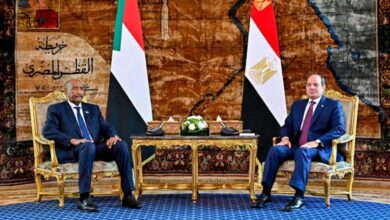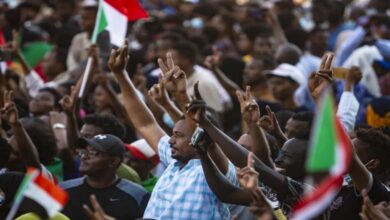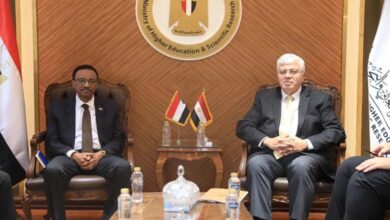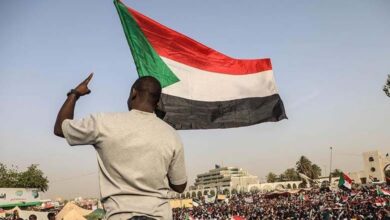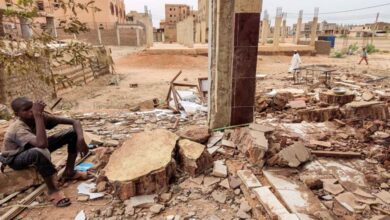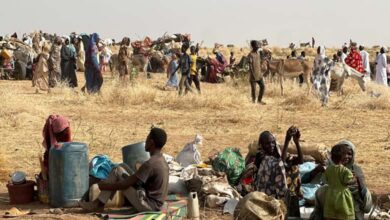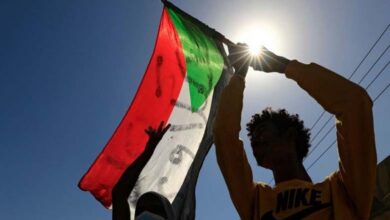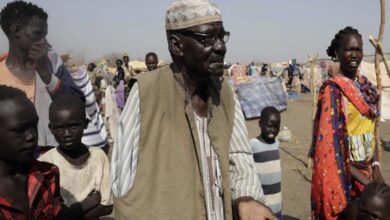Al-Burhan and the Islamist Movement: A Troubled Alliance Selling Off Sudanese Sovereignty
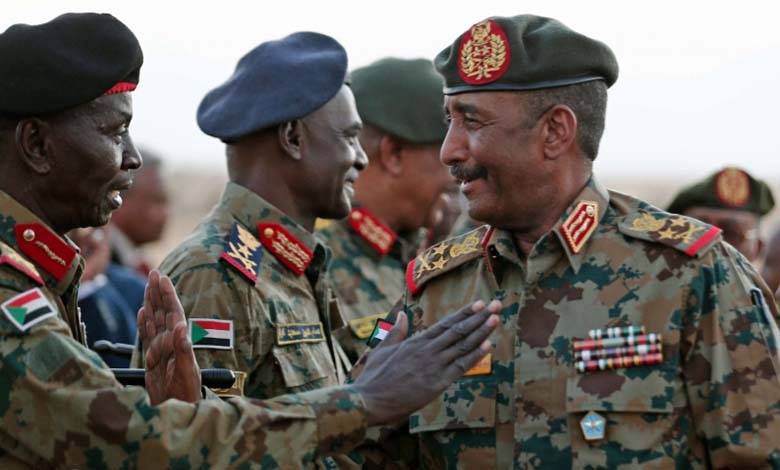
Since the outbreak of the recent Sudanese war, the country has appeared trapped in an endless battle. Yet, beneath the noise of the guns, secret settlements are being woven, shady deals struck, and resources plundered—gold and medicine above all—while the Sudanese people remain the primary victims. What is now emerging is that the army and the Islamist movement are steering the nation toward a deep abyss, where corruption and power struggles determine the fate of an entire people.
-
The secret file: how Cairo is pushing to dismantle the Islamist movement within Sudan’s military establishment
-
The Death of Islamist Leader Anas Faisal Karti: A New Blow to Sudan’s Islamic Movement
Leaked reports from political and military circles point to undisclosed negotiations between the Rapid Support Forces (RSF) and a faction within the army led by Abdel Fattah al-Burhan. These talks aim to establish a political arrangement excluding the Islamists. Although never officially acknowledged, they reflect a late realization by military leaders that the Islamist current has become a political and social liability, jeopardizing both domestic and international acceptance. Yet paradoxically, Burhan remains dependent on the Islamists in his day-to-day decisions, leaving the army torn between distancing itself from old allies or making deals with former foes.
The army’s abandonment of armed movements in El-Fasher has exposed its discriminatory policies. Local forces were left to face the RSF advance alone, while the army withdrew or withheld sufficient support. Regional sources insist the decision was not purely military but politically motivated, distinguishing between blood spilled in the center and blood shed on the periphery. Such practices fuel growing resentment in western Sudan and reopen old ethnic and regional wounds.
-
The Death of Anas Faisal in Umm Sayala: A Major Blow to Sudan’s Islamist Movement
-
Between Deception and Failure: How the Sudanese Army Manufactures Illusory Victories
In Port Sudan, the temporary administrative capital, another side of the crisis emerges. The health system is collapsing under epidemics and severe shortages of essential drugs. Testimonies from medical professionals indicate that the army monopolizes medical supplies for military purposes, leaving hospitals stripped of life-saving resources. This deliberate prioritization of war over citizens’ survival demonstrates how state institutions have been reduced to mere instruments of conflict.
One of the most explosive issues is gold smuggling. Reports highlight the involvement of high-ranking army officials in transnational networks selling and exporting Sudanese gold with the support of foreign states. The profits never reach state coffers; instead, they enrich generals and bankroll shadowy deals. Once seen as a potential pillar to rescue Sudan’s faltering economy, gold has become the engine of a war without end.
-
Report: The Sudanese Army’s Media Disinformation… Manufacturing Illusory Victories to Conceal Battlefield Losses
-
The Rise of the Sudanese Army’s Disinformation Narrative: Fabricated Operations and Inflated Illusory Victories
On the battlefield, whether in El-Fasher or Kordofan, the army’s performance is visibly deteriorating: repeated retreats, mounting losses, and deepening distrust within the ranks. Disputes between officers and Islamists over military strategy are no longer hidden. A faction of the army argues that Islamists are dragging the institution into a hopeless war, while the Islamists cling to their uncompromising military logic. The result is a paralyzed army, unable to impose its will either on the ground or at the negotiating table.
Talk of imminent changes in army leadership does not indicate reform but rather reflects a struggle for power among competing factions. Each side attempts to seize control by removing rivals and installing loyalists. This inward struggle distracts the army from protecting the state and its people.
-
Reuters Exposes the Colombian Mercenaries Lie: Port Sudan’s Authority Sinks Deeper into Disinformation
-
Reuters dismantles the Colombian mercenaries claims: Port Sudan faces a credibility crisis
Even more alarming are political leaks suggesting that Burhan has shown willingness to make strategic concessions on maritime sovereignty and port management. Reports indicate potential deals granting a neighboring state control over Port Sudan’s facilities in exchange for continued political and military support. Such compromises amount to a direct betrayal of Sudanese sovereignty.
As for the Islamist movement, it remains locked in its military mindset, rejecting any peaceful alternative. This is less a sign of strength than of incapacity to adapt to new realities. Their insistence on war ensures the further depletion of state resources and the deepening of ethnic and tribal divisions.
-
Soaring prices and epidemics: Al-Burhan’s corruption traps Sudan
-
The Miliṭ tragedy exposes the Islamic Movement’s army involvement in a war of starvation
Adding to the crisis is Egypt’s ongoing leverage. Its military and diplomatic support is never unconditional; it comes tied to demands over sensitive issues such as the Halayeb and Shalateen border areas and Nile water rights. These conditions leave Sudan in a position of weakness, compelled to offer painful concessions in exchange for Cairo’s backing.
Overall, Sudan is not simply facing a war between the army and the RSF, but an internal struggle where the army sinks deeper into corruption, the Islamists cling to outdated illusions, and the Sudanese people are drained between them. Unless this toxic equation of secret deals, resource looting, and endless war is broken, Sudan will continue to unravel—its sovereignty and wealth reduced to bargaining chips for generals seeking survival, not a future for the nation.


